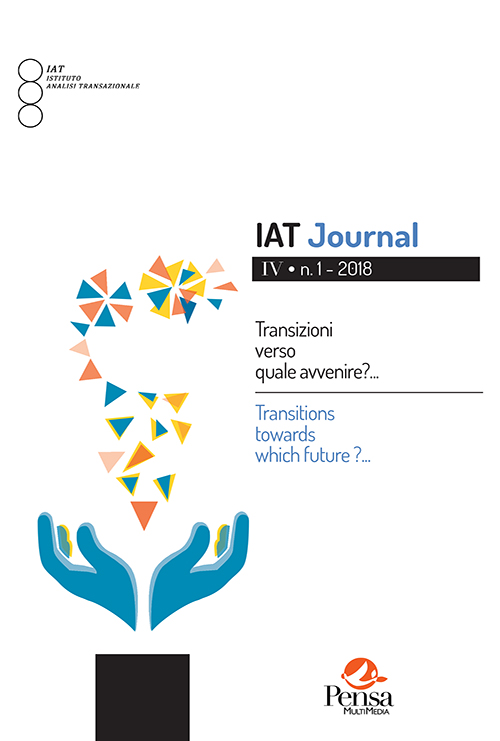Mobbing as an attack to basic hungers and relational needs
DOI:
https://doi.org/10.7347/IAT-IV-01-18_03Keywords:
mobbing, basic human hungers, Berne, relational needsAbstract
The present paper addresses both to psychotherapists and to organizational consultants, it deals with a frequent and unfortunately widely spread phenomenon in organizations called mobbing (bullying or harassing in some english speaking countries). Although the phenomenon is expanded TA practitioners of both fields, in several countries, often seem to be unaware of it failing to identify correctly the pain, depression and spectrum of symptoms, both psychological and physical connec‐ted with this condition experienced by a large number of people in their working environment. The present paper intends to be a contribution in this direction aiming at helping TA practitioners to re‐cognize the situations and symptoms which may be connected with mobbing situations so as to be able to support their clients, who may be going through it, in taking the needed steps and actions to protect themselves from severe emotional damage as well as helping them promote their own health in their working environment. Descriptions of the organizational behaviors connected with it and of their disruptive psychological effect on the mental health of the individual undergoing mobbing actions are indicated so as to help practitioners identify the strategies used, at times, wi‐thin organizations, to attack the individual and his sense of self‐esteem and self‐worth. The attacks on the individual at work which I observed in my professional practice, described as mobbing actions in the literature (Leymann, Ege, Gilioli), appear to be attacks to basic human needs or hungers (Berne) and to relational needs (Erskine). TA practitioners can be therefore facilitated in identifying this phenomenon more effectively in using the TA theoretical conceptualization indicated when dealing with clients presenting severe psychological problems at work.


